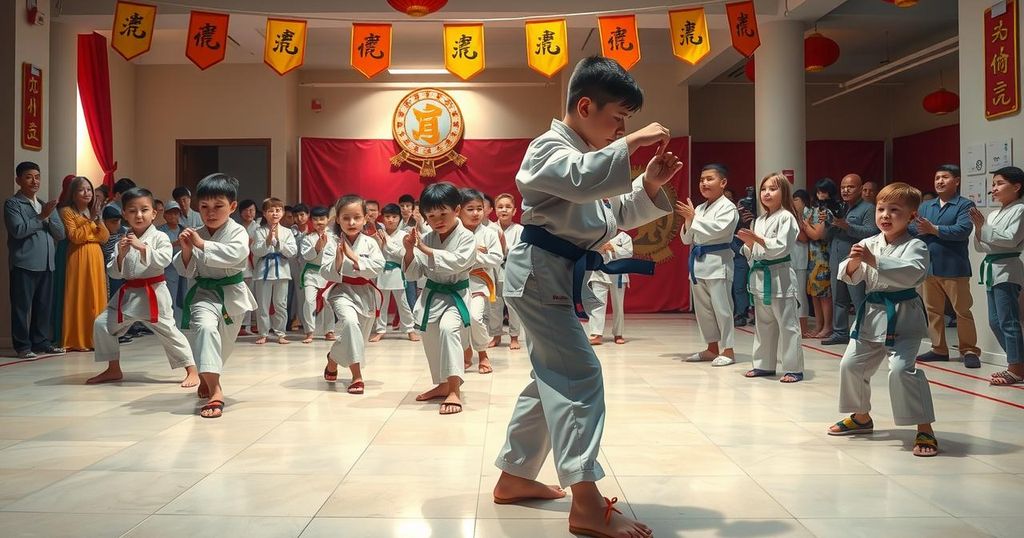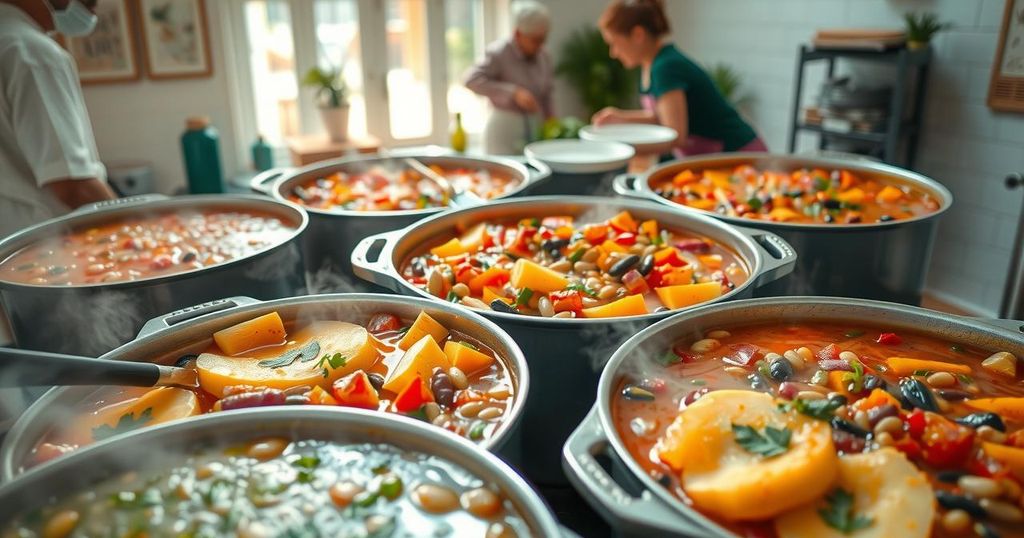Martial Arts Milestones Celebrated as African GOJU Marks 40 Years and Taekwondo Turns 50 in Ghana
Ghana celebrated significant milestones in martial arts with African GOJU marking 40 years and taekwondo 50 years. The ceremony in Accra featured key figures, performances from young practitioners, and a strong call for the support of martial arts. Danny Gwira stressed the cultural importance and future directions for these disciplines.
On a vibrant Sunday in Accra, Ghana, an impressive celebration unfolded at Beda’s Hotel and Events Centre, marking significant anniversaries in the country’s martial arts history. Both African GOJU and taekwondo commemorated milestones: African GOJU celebrated 40 years while taekwondo marked 50 years of fostering discipline and skill among Ghanaians. Martial arts veterans, enthusiastic youth, and community leaders gathered to recognize their enduring relevance in Ghanaian society.
The event was led by Danny Gwira, the founder of African GOJU, who passionately emphasized the importance of indigenous martial arts. He urged Ghanaians to see these practices not merely as forms of self-defense but as essential tools for youth discipline and cultural preservation. “African GOJU is a unique system of martial arts involving 50 defensive techniques tailored to a typical African setting. It teaches you to endure, react, and be street-smart,” Gwira stated in an interview with Graphic Sports.
Furthermore, Gwira elaborated on how African GOJU transcends physical training, highlighting its focus on environmental consciousness and the need for community protection. He sees the discipline as a complete lifestyle approach, deeply rooted in African values, aiming to equip citizens with resilience to combat societal issues.
The event also honored the pioneers of martial arts in Ghana. Hanny Zahabi, notable for introducing taekwondo to the nation, received a black belt from the African GOJU community as a gesture of appreciation for his immense contributions over the past five decades. “The sport has come a long way and is now a national pastime in many communities,” Zahabi reflected, also advising newcomers to uphold the core principles of martial arts: discipline, self-defense, and resilience.
In an exciting display of talent, over 20 young practitioners, aged 6 to 15, showcased African GOJU techniques, captivating the audience with their skill and enthusiasm. Participants were awarded certificates as a mark of dedication, highlighting their commitment to preserving and extending the art’s legacy.
The ceremony was further elevated by the presence of noteworthy figures, including Ambassador George Haldane-Lutterodt. As a former president of the Ghana Athletics Association and a strong advocate for African GOJU, he chaired the event, praising Gwira’s commitment to the discipline. He reminded attendees, “Let us ensure African GOJU stands the test of time,” as he reinforced the importance of ongoing support for martial arts in the region.
Notable veterans like Donald Gwira and George Heward-Mills were also spotted, lending their presence to the day’s importance. This gathering was not just a nod to the past; it served as an inspiration for the next wave of Ghanaian martial artists, demonstrating the significance of the martial arts community in nurturing future generations.
The simultaneous celebration of African GOJU and taekwondo underscored martial arts’ role as a transformative force in local communities. Both disciplines serve as vital instruments not just for sport but also for nation-building, embodying deep cultural values. As the day progressed, Gwira’s vision of enriching youth through empowerment and reinforcing cultural integrity became clear. A renewed call emerged for more institutional support to embed martial arts in schools and communities nationwide.
In summary, the recent celebration of African GOJU’s 40th anniversary and taekwondo’s 50th in Ghana highlighted the rich legacy of martial arts in the country. The event brought together enthusiasts and practitioners to honor the past while inspiring the future. Key figures emphasized the need for continued support and institutionalization of martial arts, reinforcing their role as vital tools for personal empowerment and community cohesion.
Original Source: www.graphic.com.gh




Post Comment